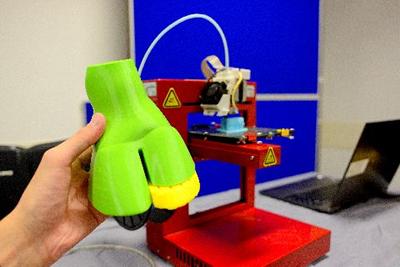Latest awards bring total number of Pump Priming projects awarded to 24

Seven new projects have successfully secured NAMRIP Pump Priming funding in Rounds 4 and 5. The competition in the latest rounds was extremely fierce with a high level of applications.
The successfull projects all bring together researchers from engineering and physical science (EPS) with those from non-EPS disciplines to tackle the challenge of anti-microbial resistance.
Pump Priming Project awarded in Round 4 (Restricted to project leads within Faculty of Social, Human and Mathematical Sciences and Faculty of Business, Law and Art)
- Fighting superbugs on the home front: becoming an ecological citizen in your bathroom. Project Team - Dr Emma Roe, Professor Ian Williams, Dr A.M. Viens, Dr Owain Jones and Dr Paul Hurley. The project aims to understand the domestic contribution to the rise of AMR in the environment and address how people can become ecological citizens through landfill and water based waste-disposal practices.
Pump Priming Projects awarded in Round 5
- Preventing bone infection in bone graft augmentation and impaction bone grafting. Project Team - Dr Janos Kanczler, Dr Jon Dawson, Dr Phillip Schneider, Dr Bram Sengers and Prof Richard Oreffo. The project will explore using gel coated implants to deliver growth factors and antibiotics to prevent infection. New imaging techniques will help in the assessment of this technique as well as computer modelling.
- Development of rationally designed tagatose analogues as a novel treatment strategy for pneumococcal biofilm infections. Project Team - Dr Ray Allan, Professor Bruno Linclau, Professor Saul Faust and Dr Clement Fontenelle.This project will investigate using a rare sugar called tagatose to kill pneumococcal cells or make them more susceptible to antibiotic treatment.
- Identification and structural characterisation of a putative IgD binding protein in the outer membrane of Neisseria lactamica leading to translation as a strategy to maintain bacterial commensalism. Project Team - Professor Robert Read, Dr Andrew Vaughan and Professor Peter Roach. The project will crystallize and characterise this IgdD binding protein which has been found to play a role in maintaining friendly bacteria.
- Towards a rapid sample in – answer out system to detect and identify antibiotic resistant bacteria in human samples. Project Team - Dr Martha Valiadi, Dr Sumit Kalsi, Dr Despina Moschou, Professor Hywel Morgan, Dr Mark Sutton and Dr Carrie Turner. This project aims to develop a proof-of-principle rapid 'universal' test to detect antibiotic resistant pathogens in a variety of human samples.
- Novel In-vivo Imaging of Antimicrobial Resistant Streptococcus pneumoniae Biofilms within the Galleria mellonella animal model. Project Team - Robert Hull, Dr Orestis Katsamenis, Professor Jeremy Webb, Dr Stuart Clarke, Dr David Cleary, Professor Saul Faust, Dr Neil O'Brien, Dr Rob Howlin and Professor Paul Stoodley. This project will use micro-computed tomography (3D microscopy) to visualise and quantify antibotic treatment on biofilms.
- Microbial Pathogen Detection in Ocular Infection Using Microfluidic Impedance Flow Cytometry (MIFC). Project Team - Dr Maria del Mar Cendra, Dr Parwez Hossain, Dr Daniel Spencer, Dr Myron Christodoulides and Professor Hywel Morgan. This project will use MIFC to detect a range of bacteria in infected human eye tissue with the potential for a rapid diagnostic assessment at the patient bedside.
If you are interested in receiving information on future NAMRIP Pump Priming Calls please get in touch with Yvonne Richardson (Y.Richardson@soton.ac.uk).
Notes for editors
NAMRIP is funded by the University of Southampton and benefits hugely from £868,704.00 of funding from EPSRC's Network for Antimicrobial Action 'Bridging the Gap' call (EP/M027260/1).